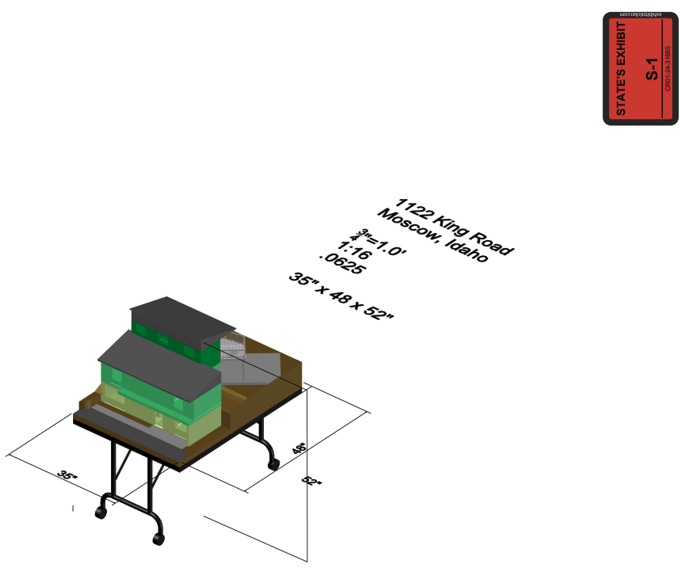BOISE, Idaho – Prosecutors want to use a 3D model of the home where four University of Idaho students were murdered when their suspected killer goes to trial this summer.
Prosecutors in the case against Bryan Kohberger filed a motion this week, asking for permission to use “demonstrative exhibits” – specifically a model of the home at 1122 King Road.
PAST COVERAGE: Crews demolish home in Moscow where four students were murdered
Kaylee Goncalves, Madison Mogen, Ethan Chapin and Xana Kernodle were stabbed to death in the home in November 2022. The homeowner eventually gifted the home to the University of Idaho, which elected to have it torn down in late 2023.
In the filing, prosecutors say the model is being constructed by the FBI and will be placed on a rolling table for portability within the court room.
“The model will consist of three levels which can be removed by level to show the interior layout of the residence,” prosecutors wrote.
Prosecutors call the layout of the home “unconventional” and say the model will allow witnesses, including the two roommates who were not attacked, to testify about where things were and what happened.
Other evidence argued
Prosecutors also argued that certain testimony should not be allowed at trial.
One motion argues that the defense should not be allowed to provide an alibi defense that is different than the one initially given by Bryan Kohberger.
Kohberger’s defense stated that he was out stargazing the night of the murders.
The state says the defense has failed to comply with rules that require them to provide any proof of that alibi.
Prosecutors also argue that the defense should not be able to present that there could be an alternative perpetrator “without evidence successfully connecting person(s) other than the Defendant.”
To to do, prosecutors argue, “would do nothing more than mislead and confuse the jury and would also result in undue delay [and] waste of time.”
Basically, prosecutors say the defense needs to provide evidence to back up a theory that someone other than Kohberger committed the crime; if they don’t, the state argues, they shouldn’t be allowed to float that theory at trial.
Finally, prosecutors reference that the defense may be planning to provide testimony “regarding neuropsychological evaluation and psychiatric evaluation of the Defendant.”
It’s not clear what the defense plans to present in relation to Kohberger’s mental state, but prosecutors say whatever the defense has said it would present “falls outside of the mental condition allowable under Idaho code.”
Kohberger has no criminal history and was a PhD student in criminology at nearby Washington State University at the time of the murders.
If convicted, he faces the death penalty.
COPYRIGHT 2025 BY KXLY. ALL RIGHTS RESERVED. THIS MATERIAL MAY NOT BE PUBLISHED, BROADCAST, REWRITTEN OR REDISTRIBUTED.

